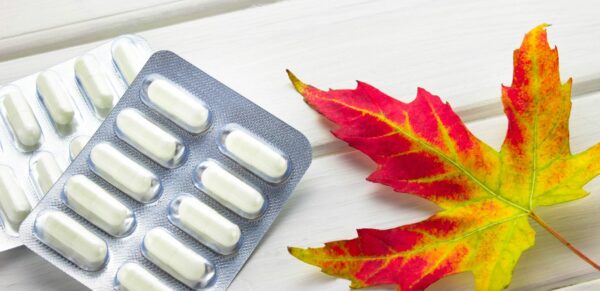Vitafoods Europe 2019: latest innovations and new trends observed

This year, JLB Développement was once again present at the international event of the nutraceutical industry – the 2019 Vitafoods Europe Exhibition. This was a record-breaking year with this major event attracting over 24,000 visitors, that is 15% more than in 2018. It certainly lived up to our expectations, providing a wealth of innovations and showcasing all of the latest eye-catching trends including sustainability, nutrigenomics and CBD (cannabidiol) to name but a few.
Sustainability: ever-increasing consumer expectations
In addition to efficacy, ethical and environmental criteria are increasingly taken into consideration by consumers of health nutrition products. A growing concern highlighted in the latest Nielsen report on Sustainable Shoppers: 73% of respondents stated that they were now ready to change their purchasing habits in an attempt to reduce their environmental impact.
Willing to pay a higher price for a more natural product (organic or GMO-free, for instance), ever-increasing numbers of consumers are paving the way for brands to promote their products.
Many companies showcased their environmental policies at the exhibition. Sourcing, ever more sustainable, proved to be a hot topic of discussion, focusing on the choice of local ingredients, for example. Other virtuous approaches also highlighted at the exhibition included clean production methods in compliance with biodiversity, fair remuneration for producers and the development of local subsidiaries with the focus on job creation.
Clean Label: a remaining trend
Nowadays, Clean Label is a trend that has consolidated its position in the health nutrition market. We have noticed this trend towards simplification and increasingly natural products, as illustrated by strong growth in the market for Clean Label products. According to the Clean Label Market Ingredient 2018-2023 study by PRNewswire, this market should amount to $47.5 million in 2023.
Mental well-being: an increasingly holistic approach
The mental well-being market is soaring and is set to witness growth of 19.6% between 2016 and 2024 according to Innova Market Insights. Focus, concentration, mental tone… the market reaches an extremely broad target group ranging from students to the elderly via athletes and active people. Manufacturers are promising to go from strength to strength with products targeting both the mental and physical health of consumers.
As far as ingredients are concerned, new products include omega-3, Zynamite® (natural caffeine replacement), guarana, ginger and turmeric among other things.
Nutrigenomics: heading towards personalised health nutrition
Knowing and understanding what consumers eat, and ensuring that dietary choices really meet their requirements – the 2019 Vitafoods Exhibition reminds us that consumers are increasingly making the link between nutrition and health.
Nutrigenomics is the study and regulation of the effects of foods and food ingredients on metabolic gene expression. And from the consumer’s perspective, there are genuine expectations in this area. Based on a Mintel study of the British market, 42% of respondents said they were ready to adopt a diet tailored to their DNA.
Whether preventing or combating certain illnesses such as diabetes, obesity, cancer or cardiovascular diseases, the nutrigenomics market looks particularly promising and many companies are investing in research. At this year’s exhibition, we were able to discover products already available in the form of personalised food supplements, drinks, foods or nutritious gels for food preparation.
Still in its infancy, the market has to rely on scientific studies – which have been rather sparse to date – and needs to regulate itself. Only real transparency will reassure consumers when it comes to granting access to their DNA. This currently poses a genuine obstacle given the already strong reluctance to share personal data.
CBD: a trend to follow closely
CBD (cannabidiol: a cannabinoid present in cannabis) – a major new feature of the 2019 exhibition.
Although the general public tends to associate it with recreation, CBD possesses many anti-oxidant, anti-inflammatory and relaxing properties – all of which are particularly relevant to health nutrition.
Brands can now exploit this opportunity since CBD regulations, especially those governing its medical use, have benefited from greater world-wide flexibility. Market launches of hemp-based products have increased by 34%. Firmly in line with the natural trend, many brands are in fact seeking to explore the full potential of cannabidiol for use in promoting consumer mental and physical health.
However, legislation is very strict in France and limits the waiver to the grain and fibre of certain varieties of hemp. The plant must contain less than 0.2% THC (tetrahydrocannabinol) whilst finished products must have no trace of THC in order to be authorised.
Alternatives to dairy proteins: plant proteins but it doesn’t stop there!
More and more alternatives to dairy proteins are emerging. We are now familiar with plant proteins (peas, soya, rice, etc.) and microalgae (spirulina, chlorella, etc.), but bovine proteins are also coming to the fore. These protein isolates contain a high concentration of proteins and are therefore low in fats and carbohydrates. They are particularly suitable for sports nutrition given their high energy-boosting effect.
Insect proteins also have a strong potential as they are part of a sustainable development dynamic. European regulations in this area are very strict. Any new food requires Community authorisation before it can be marketed. This calls for prior authorisation to rule out any risk of toxin consumption – chemical and physical agents that are dangerous to humans.
N.B.: the marketing of insects for human consumption comes under European and Council Regulation No. 2283/2015 of 25 November 2015 (new foods). This regulation stipulates that any new food must have Community authorisation before it can be launched on the European market.
Nutricosmetics: beauty from within, a lasting trend
Driven by both the ageing of the population and the increasing consumption of health products, the nutricosmetic market is carving a niche on the nutraceuticals stage. Predicted a bright future, it should grow by 5% per annum from 2017 to 2025, reaching $7.93 billion between now and 2025.
However, brands still face a challenging time ahead. They have to raise consumer awareness of the hitherto little known benefits of nutricosmetics. This awareness is further limited by the time needed to obtain initial results and by expensive cures.
In keeping with the consumer search for natural products, many ingredients are derived from plants: turmeric used for its antioxidant properties in particular, lycored, ceramides and SOD (superoxide dismutase), etc. The leading light at this year’s exhibition was still collagen. Corroborated by clinical studies, Robertet Lipowheat® phytoceramides have also stepped into the limelight. This ingredient is also contained in Beauty Juice, which we have developed.
Offering a wealth of information, the 2019 exhibition also highlighted many other trends including the use of probiotics to control weight, female health and health snacks to name but a few.
Don’t hesitate to contact us for more information on this topic.
Visit LinkedIn for the latest updates!
See you soon!


